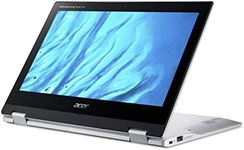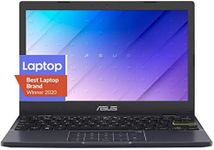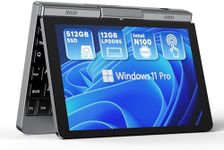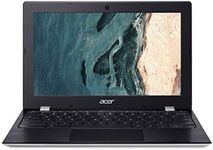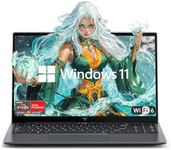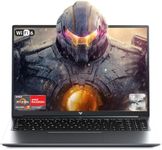Buying Guide for the Best Mini Laptops
Mini-laptops, often called netbooks or ultraportables, are compact and lightweight computers designed for portability and basic computing tasks. When choosing a mini-laptop, it's important to focus on how you plan to use it—whether for web browsing, note-taking, streaming, or light productivity. Understanding the key specifications will help you find a model that matches your needs without unnecessary features or compromises.Screen SizeScreen size refers to the diagonal measurement of the display, usually in inches. For mini-laptops, this typically ranges from 10 to 13 inches. A smaller screen (10-11 inches) makes the device more portable and lightweight, ideal for travel or carrying in a small bag, but it can feel cramped for extended use. Larger screens (12-13 inches) offer more comfortable viewing and typing, making them better for longer work sessions or multitasking. Choose a screen size based on how much you value portability versus comfort.
WeightWeight is a key factor in portability. Mini-laptops usually weigh between 1 to 3 pounds. Lighter models are easier to carry around all day, which is great for students or commuters. Heavier models may offer sturdier builds or larger batteries but can be less convenient to transport. Consider how often you'll be carrying your mini-laptop and pick a weight that matches your lifestyle.
Processor (CPU)The processor is the brain of the laptop and determines how quickly it can handle tasks. Mini-laptops often use energy-efficient processors, which are good for basic tasks like browsing, email, and word processing. Entry-level CPUs are fine for simple use, while mid-range options offer smoother multitasking and better performance for light productivity. If you plan to run demanding applications, you may need to look for a more powerful processor, but for most mini-laptop users, a basic or mid-range CPU is sufficient.
RAM (Memory)RAM is the memory that helps your laptop run multiple applications at once. Mini-laptops typically come with 2GB to 8GB of RAM. Lower amounts (2-4GB) are suitable for basic tasks like web browsing and note-taking, but you may experience slowdowns with many tabs or apps open. Higher RAM (6-8GB) allows for smoother multitasking and is better if you plan to use more demanding software or keep many programs open at once. Think about your typical usage to decide how much RAM you need.
StorageStorage is where your files, apps, and operating system are kept. Mini-laptops often use solid-state drives (SSD) for faster performance, with capacities ranging from 32GB to 256GB or more. Smaller storage (32-64GB) is fine if you mostly use cloud storage or only need to keep a few files locally. Larger storage (128GB and above) is better if you want to store more files, photos, or install more apps. Consider how much local storage you need based on your habits.
Battery LifeBattery life tells you how long the laptop can run on a single charge. Mini-laptops are designed for portability, so battery life is often a strong point, ranging from 6 to 12 hours or more. If you need to use your laptop away from power outlets for long periods, look for models with longer battery life. If you mostly use it near a charger, battery life may be less critical.
Keyboard and TouchpadThe keyboard and touchpad are your main ways of interacting with the laptop. On mini-laptops, these can be smaller and more cramped than on full-sized laptops. If you plan to type a lot, look for a model with a comfortable, well-spaced keyboard and a responsive touchpad. If possible, try typing on the device before buying to ensure it feels right for you.
Ports and ConnectivityPorts are the physical connections for USB devices, headphones, and external displays. Mini-laptops may have fewer ports due to their size, so check if they have the connections you need, like USB-A, USB-C, HDMI, or a headphone jack. Also, consider wireless connectivity like Wi-Fi and Bluetooth, which are standard but can vary in speed and reliability. Think about what devices you plan to connect and make sure the mini-laptop supports them.


